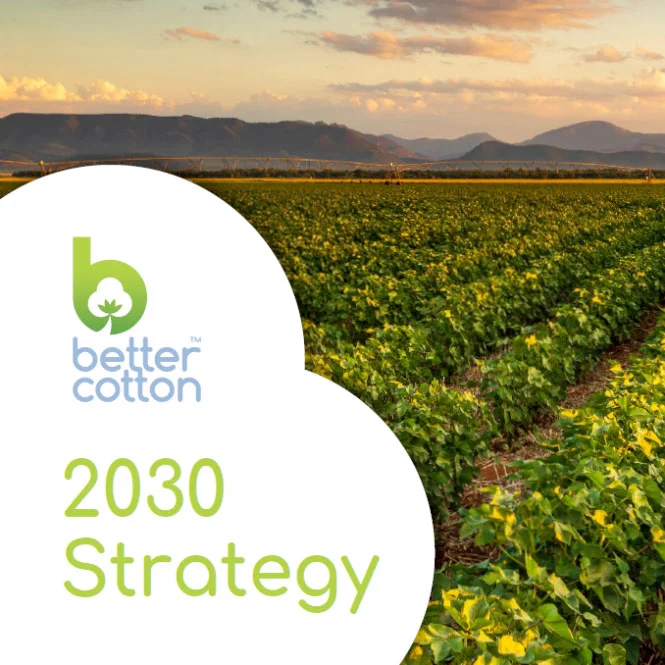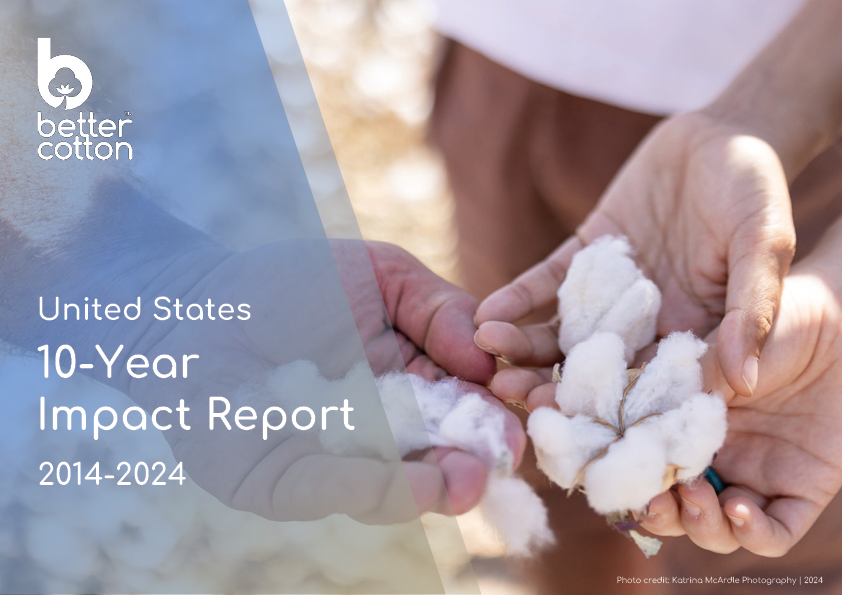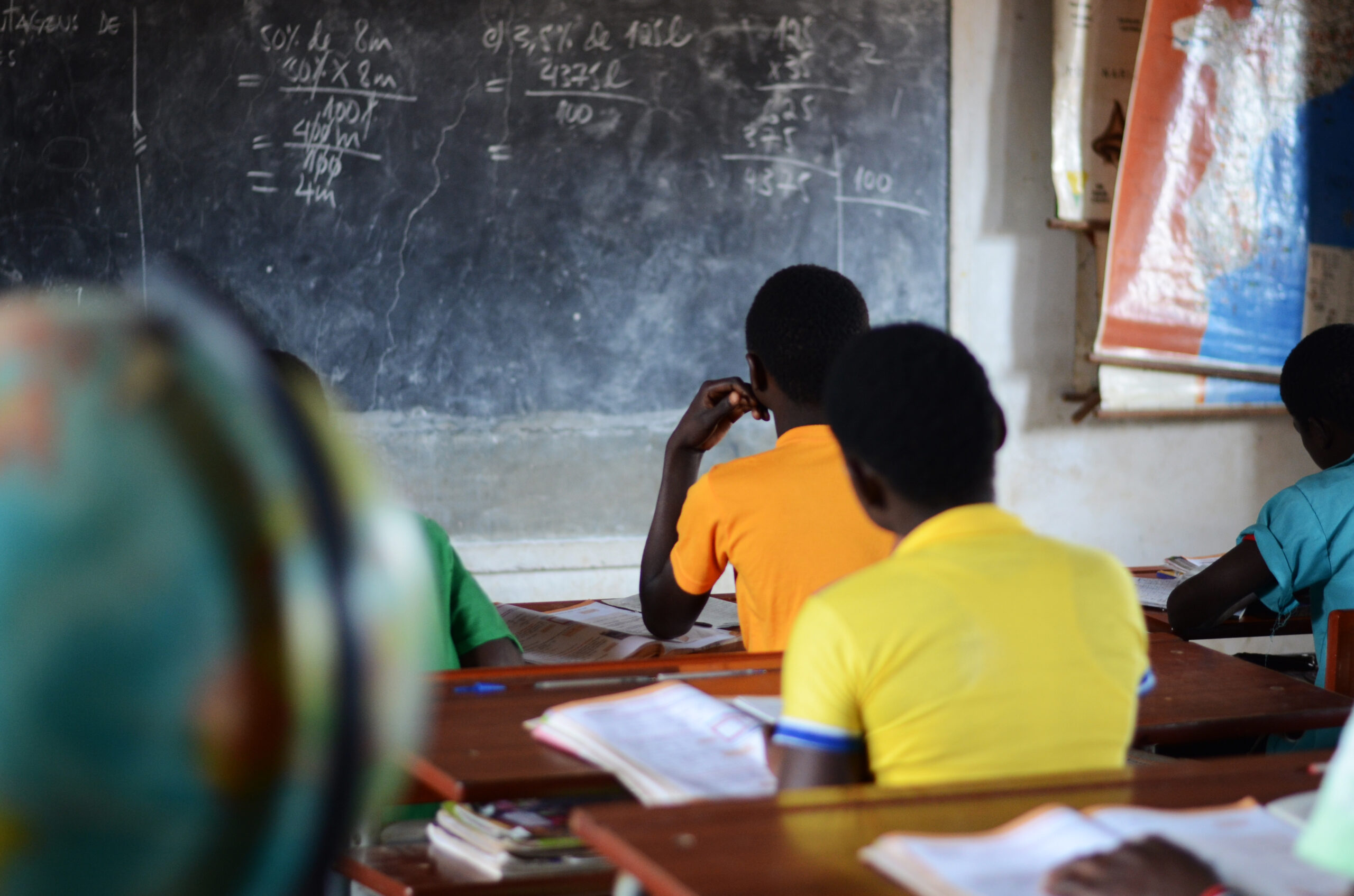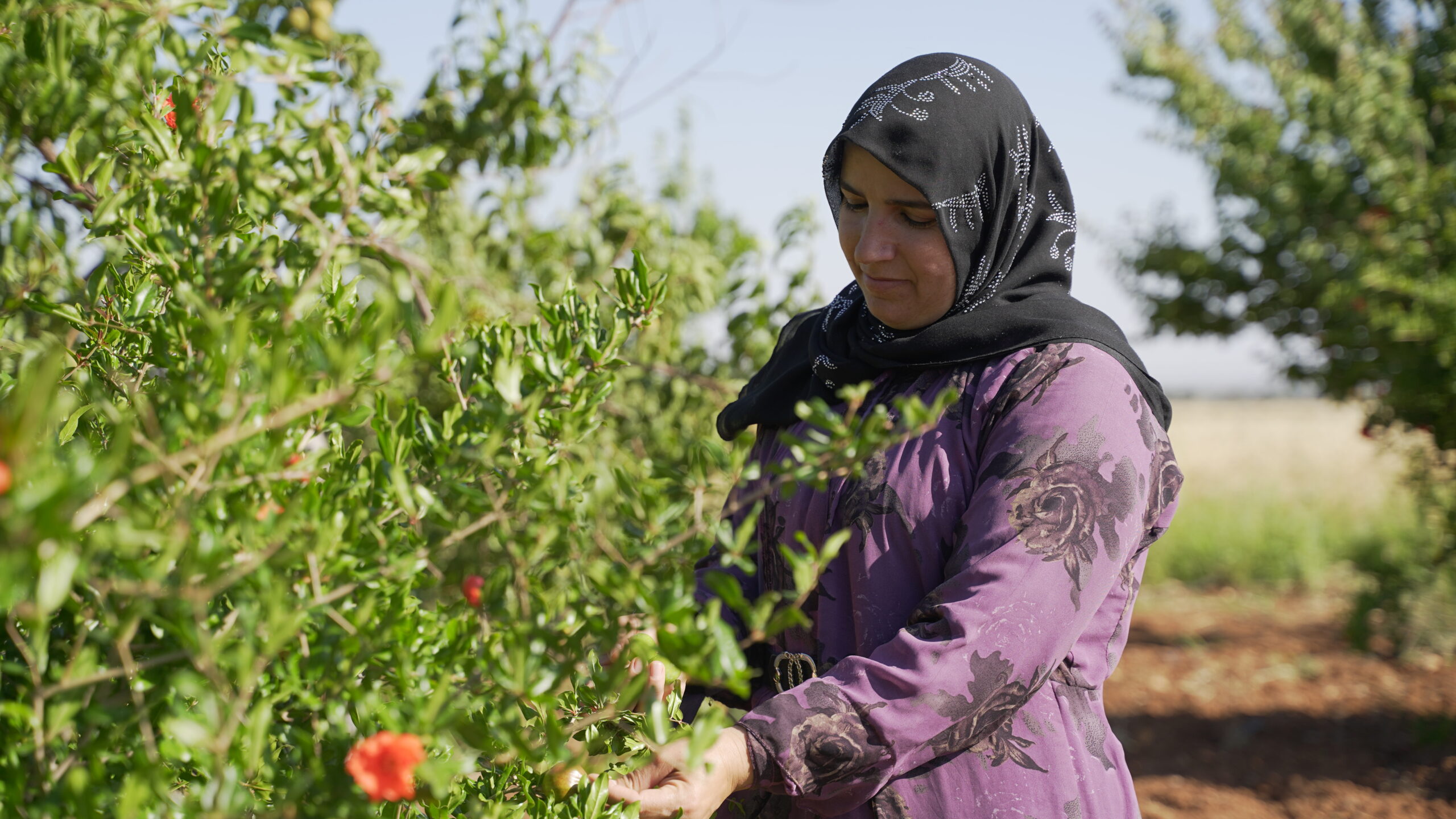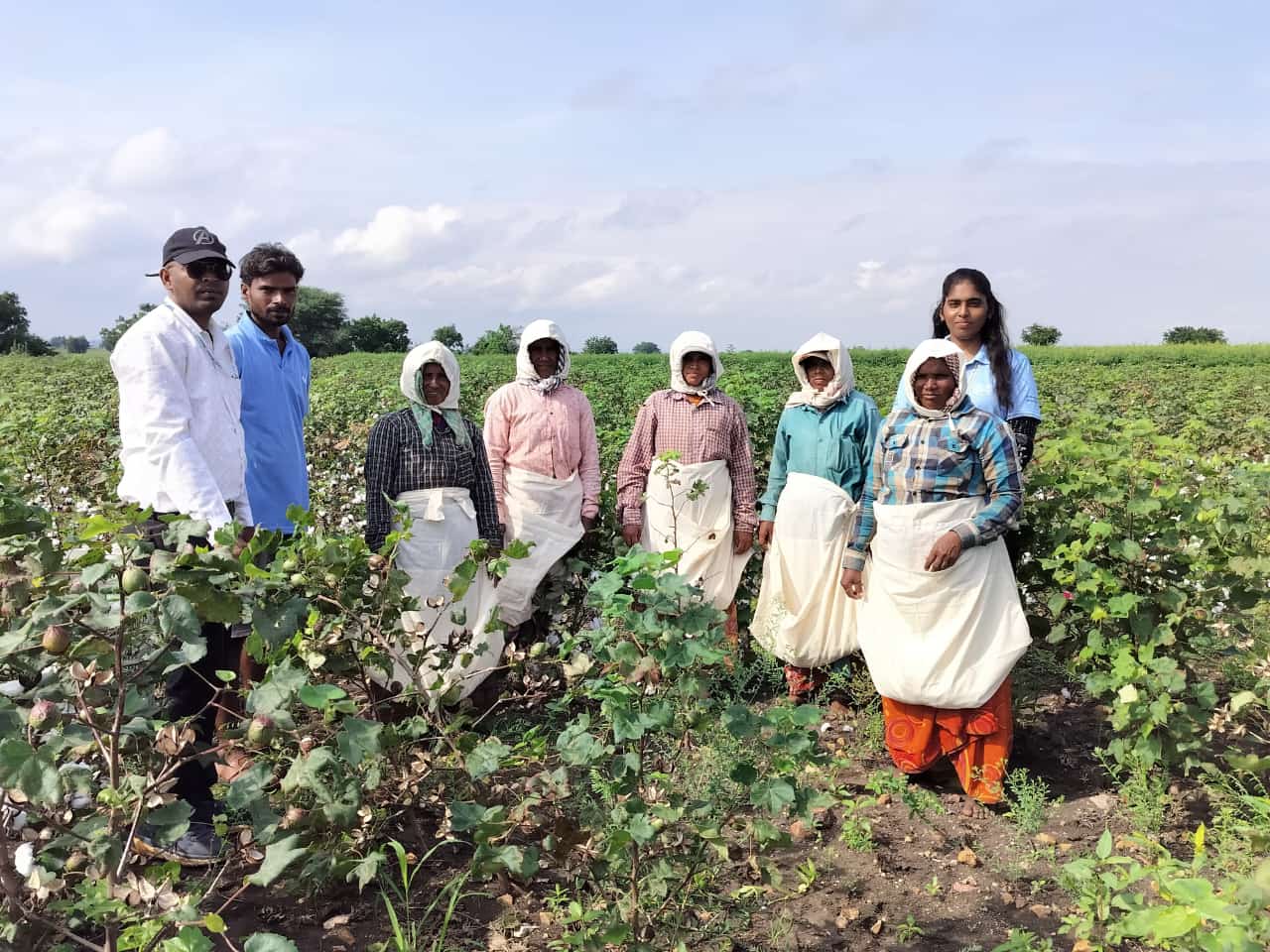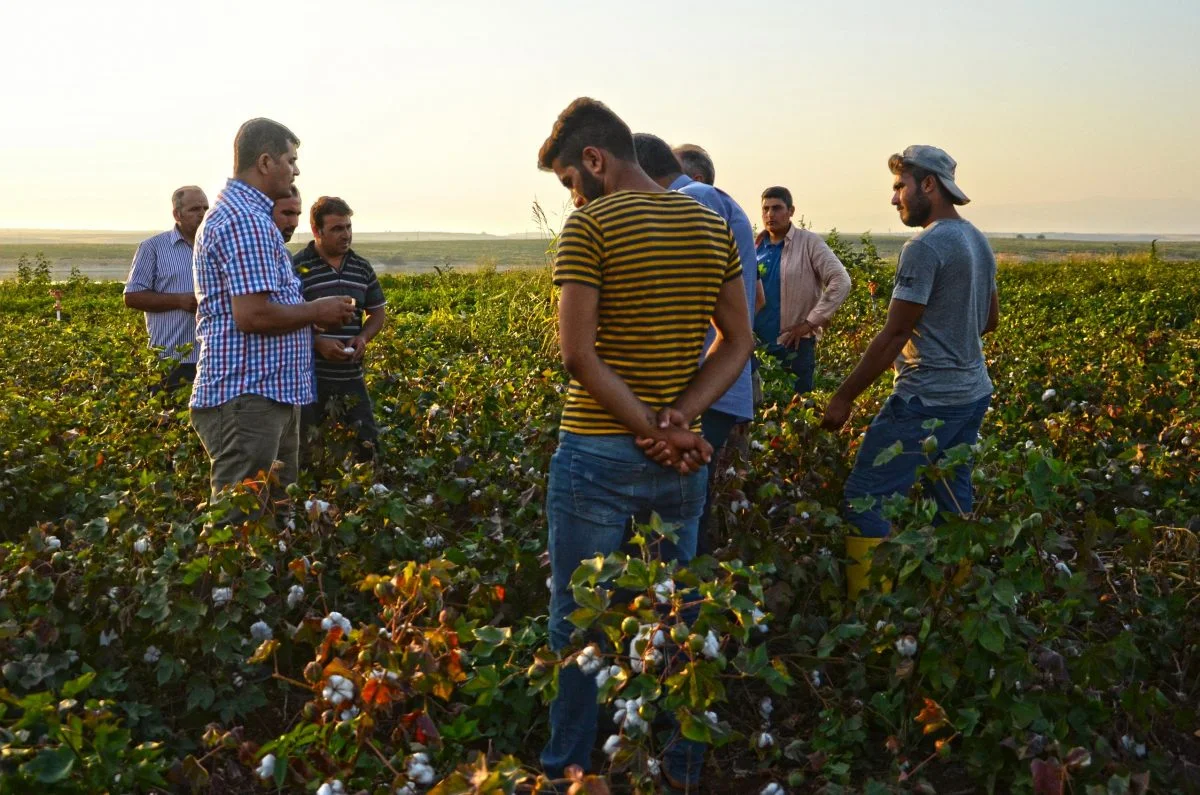
At Better Cotton, we believe that all farmers and workers have the right to decent work — productive work that offers fair income and wages, security, social protection, equal opportunities, freedom to organise, express concerns, participate in decision-making and negotiate dignified conditions of employment.
We recognise that Better Cotton is only ‘better’ if it improves the wellbeing of farmers and their communities, fostering decent work opportunities for rural populations, as well as promoting a safe and healthy environment. That’s why decent work is a central focus of our programme.
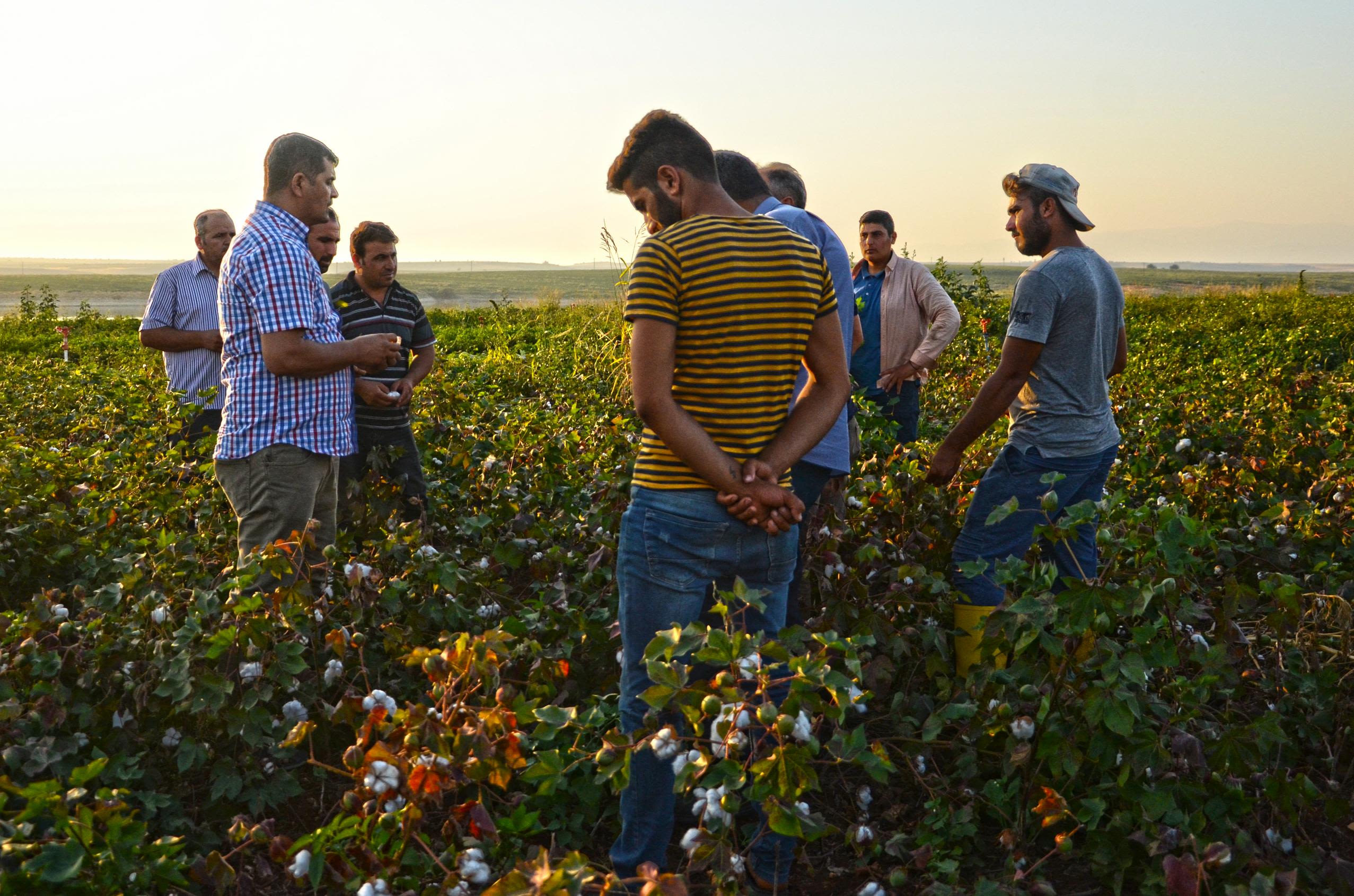
Cotton Production and Decent Work — Why it Matters
More than 70% of global cotton is produced by smallholder farmers. Smallholders around the world face multiple challenges in accessing decent work, starting with poverty and deeply entrenched structural inequalities, and ranging from market barriers to climate shocks.
Within and beyond the smallholder context, the informal nature of working relations in agriculture, as well as weak regulation and enforcement, also contribute to the challenge. Working relations and power structures are also deeply embedded in cultural and economic practices. There are no silver bullet solutions, and promoting decent work requires collaboration with stakeholders across civil society, supply chains and governments.
There are multiple farm-level labour challenges in the cotton sector, including:
Low wages and incomes
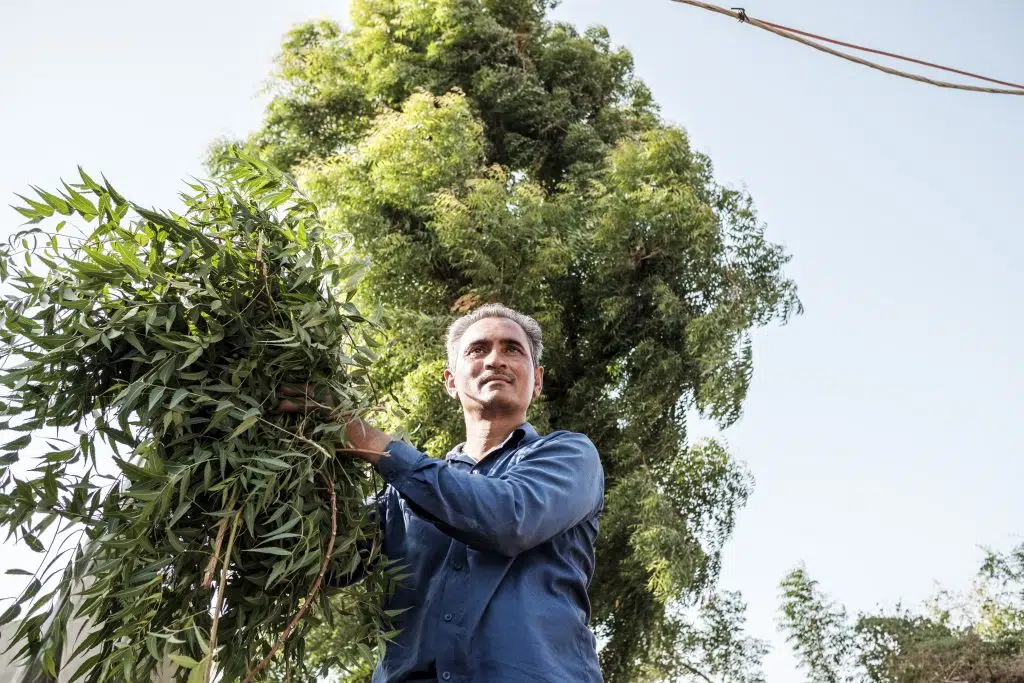
Despite taking on a great deal of risk, farmers at the base of the supply chain still struggle to be recognised and valued in global commodity markets. Facing evermore challenging conditions due to climate change, low farmer incomes act as a significant barrier to creating decent work opportunities in rural communities. Due to the largely informal and seasonal nature of working relations in agriculture, there is also often an absence of or poor enforcement of minimum wage regulations. Moreover, in many countries, minimum wages are still not enough to provide a decent standard of living. Even so, limited economic opportunities can leave workers with no choice but to accept these conditions.
Child labour
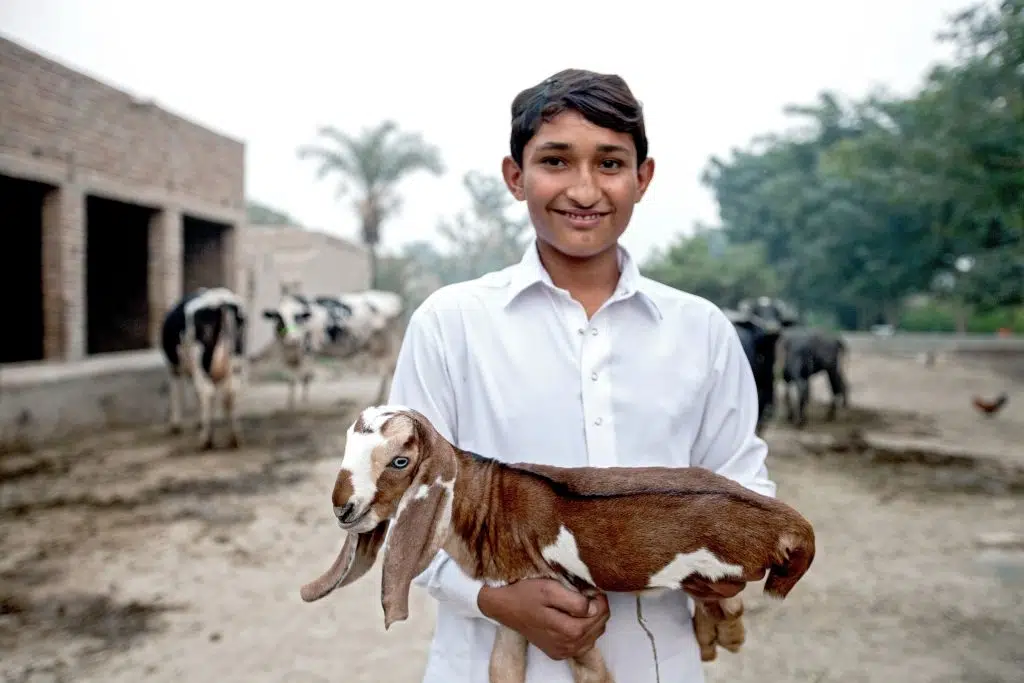
Child work is common in agriculture as families often rely on children for help with production or household support. For children of certain ages, carrying out appropriate tasks under adequate conditions, can build important skills and confidence that contribute positively to children’s development and family welfare. At the same time, child labour – work that is not age-appropriate, interferes with schooling and, or, is harmful to the physical, mental, moral and social development of children – can pose serious consequences for children and can contribute to perpetuating cycles of household poverty. In some cases, children in agriculture are engaged in the worst forms of child labour – including forced and bonded labour.
Forced and bonded labour
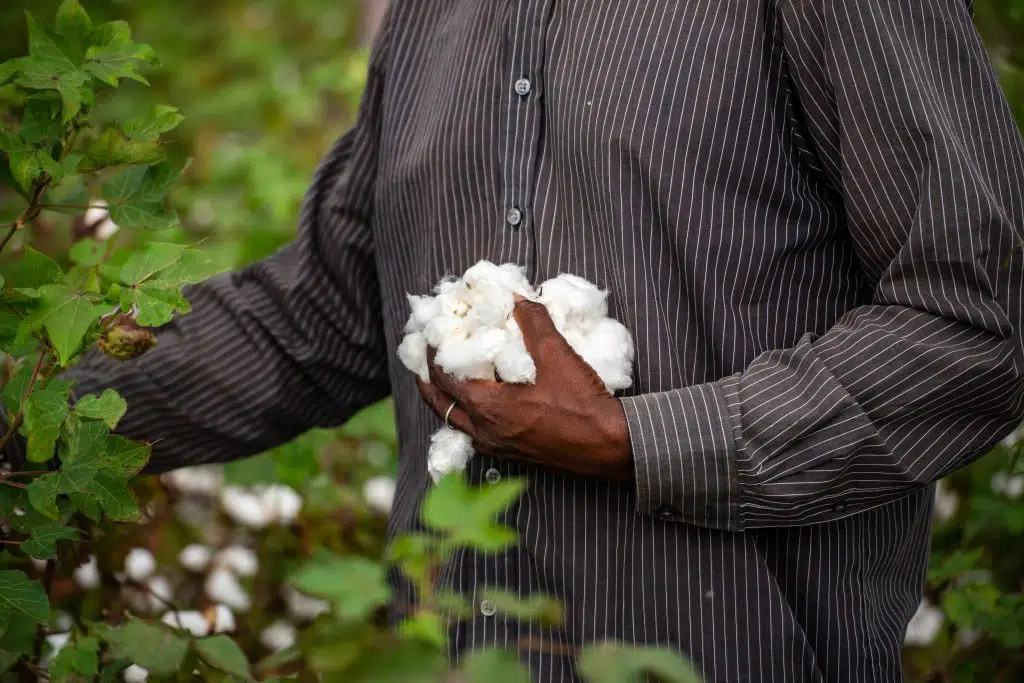
Forced labour is when people are employed against their will or deceived into employment, while facing threat of penalty, be it through violence or intimidation, confiscation of identity papers, withholding of wages, isolation or other abusive conditions that restrict their ability to leave the workplace. Bonded labour, also called debt bondage or debt slavery, is the most widespread form of forced labour, particularly in agriculture. It occurs when a person is forced to work to pay off a debt. Their indebtedness often results from deceptive working arrangements, and where the person has little to no control or understanding of their debt. In some countries, debt bondage is common among sharecroppers, who become indebted to landlords and spend years working to pay off their debts, often affecting their children, who are born into bondage. Forced labour, a form of ‘modern slavery’, disproportionately affects the most vulnerable and disadvantaged groups.
Inequality and discrimination
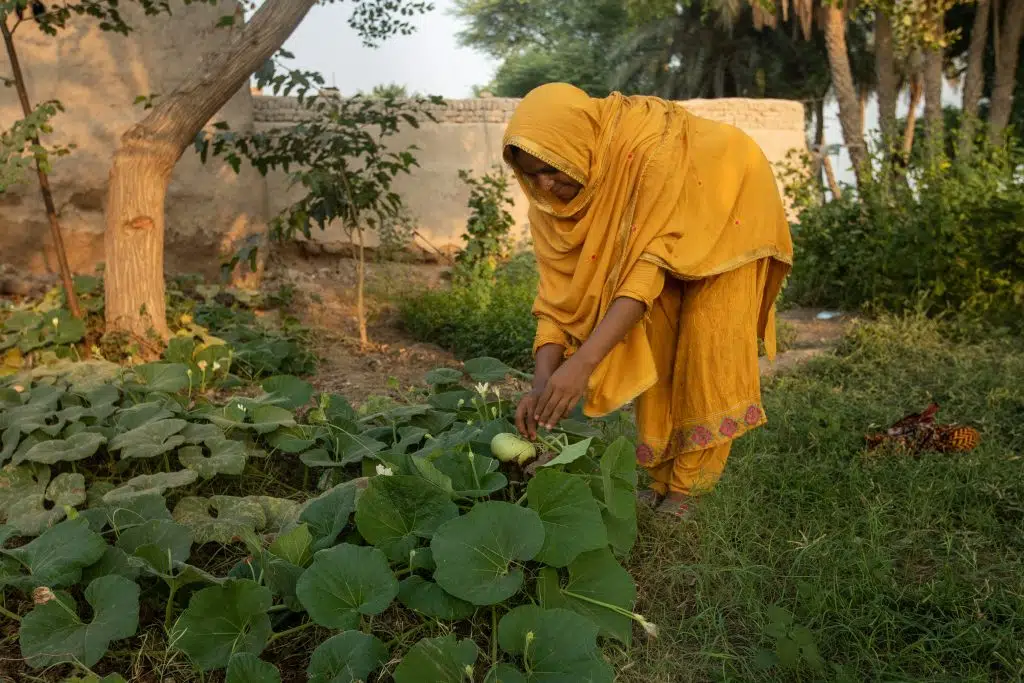
Inequality and discrimination based on gender, race, caste, colour, religion, age, disability, education, sexual orientation, language, political opinion, origin or the belonging to an ethnic, religious or social minority group, are present in the agricultural sector and across all cotton growing countries. Women in particular – do not receive equal recognition for their work, despite their central role in cotton farming. In some countries, female workers earn less than men for the same work, or are employed in lower-paying tasks, or under more vulnerable employment arrangements. They also tend to face greater barriers in access to training, land ownership and decision making. Overlapping factors such as migrant status, age, and/or belonging to a minority religious, social, or ethnic group, further increase women’s vulnerabilities to exploitation and abuse. At farm level, discriminatory practices may include less favourable or unfair treatment in recruitment, payment or occupation, as well as in access to training and basic workplace facilities.
Limited worker and farmer representation
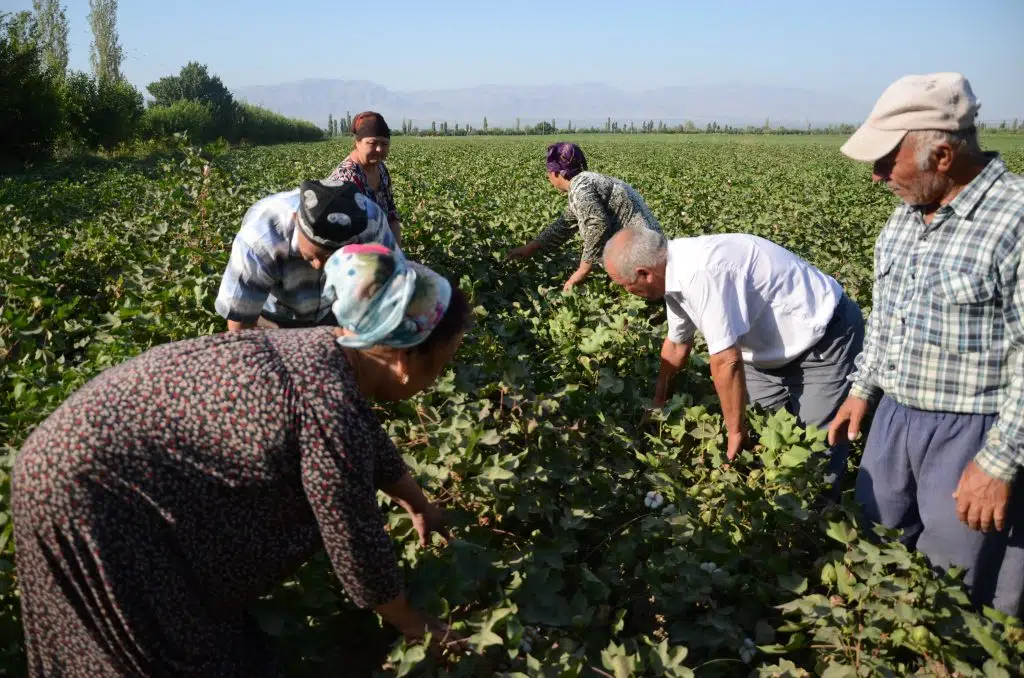
There is variable and often limited understanding and fulfilment of the fundamental principles and rights at work, including the right to organise and bargain collectively among farmers and workers. While in certain countries, farmers may join or form producer organisations or cooperatives, in other contexts constraints on the freedom of association and collective bargaining affect the formation of structures for farmer or worker representation and their ability to participate in social dialogue which could improve their working lives. Agricultural workers typically fall outside worker support mechanisms (unions, social security schemes, etc.) compared to workers in other industries. This is especially true of migrant workers. Their exclusion perpetuates the risk of their exploitation.
Health and safety concerns
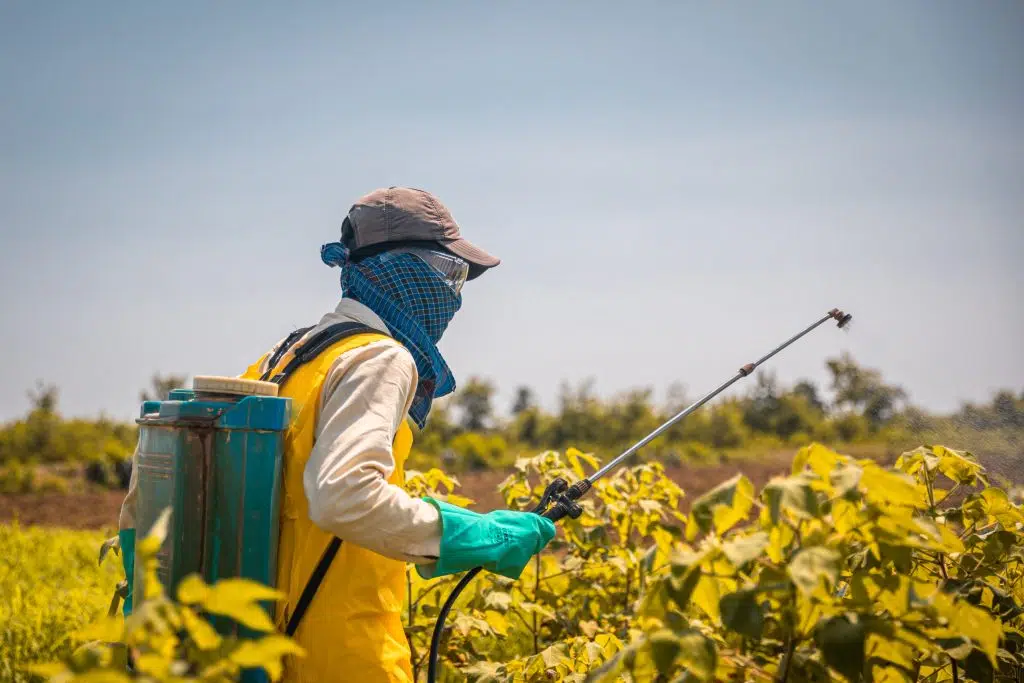
According to the ILO, agriculture is one of the most hazardous occupations worldwide. In many countries, the fatal accident rate in agriculture is double the average for all other sectors. Health and safety concerns vary depending on farm size, level of mechanization, access to PPE, and local regulation. Generally though, key health and safety concerns include: exposure to hazardous chemicals, limited access to safe water and sanitation facilities, heat stress (and limited shaded rest areas), long working hours, and accidents involving the use of sharp tools or heavy machinery. Exposure to these risks and hazards may give rise to injuries, long-term physical impairments, sickness and diseases often aggravated or resulting in death due to limited access to medical care facilities in addition to poor living and working conditions.
In general, the frequent exclusion of the agricultural sector from labour protection frameworks and associated regulatory oversight mechanisms like labour inspections translates into limited protection for farmers and workers. Likewise, the dominance of informal working arrangements and limited social protection nets, make agriculture one of the highest risk sectors, as per the ILO’s designation. Exacerbating this, the dispersed and highly mobile farm labour makes any interventions targeted to support farmers and workers, including monitoring, awareness raising or grievance handling, a real challenge to operationalize.
In promoting Decent Work, Better Cotton takes a risk-based approach, prioritizing areas where farmers and workers are at highest risk. Better Cotton always works in partnership with its Programme Partners and other technical partners, to pool together expertise and test innovative approaches. A key vehicle of our approach is our farm-level standard, but Better Cotton also engages in programmatic partnerships and interventions aiming to tackle key labour challenges.
Decent Work Strategy
A Roadmap to 2030
In 2025, Better Cotton launched the Decent Work Strategy roadmap, charting a transformative path towards dignified livelihoods for millions of people.
The roadmap provides an ambitious and comprehensive framework by which we will build on years of learnings and work with our field-level partners to further reduce vulnerabilities, enhance workers’ voices, and secure better working conditions by 2030.
It is organised around three interconnected pillars: farm level, programmes and partnerships, and multi-stakeholder collaboration. Each pillar plays a critical role in reducing vulnerabilities, enhancing workers’ voices, and fostering sustainable change, with interventions designed to address root causes and empower farming communities to thrive.
Better Cotton Decent Work Strategy: A Roadmap to 2030
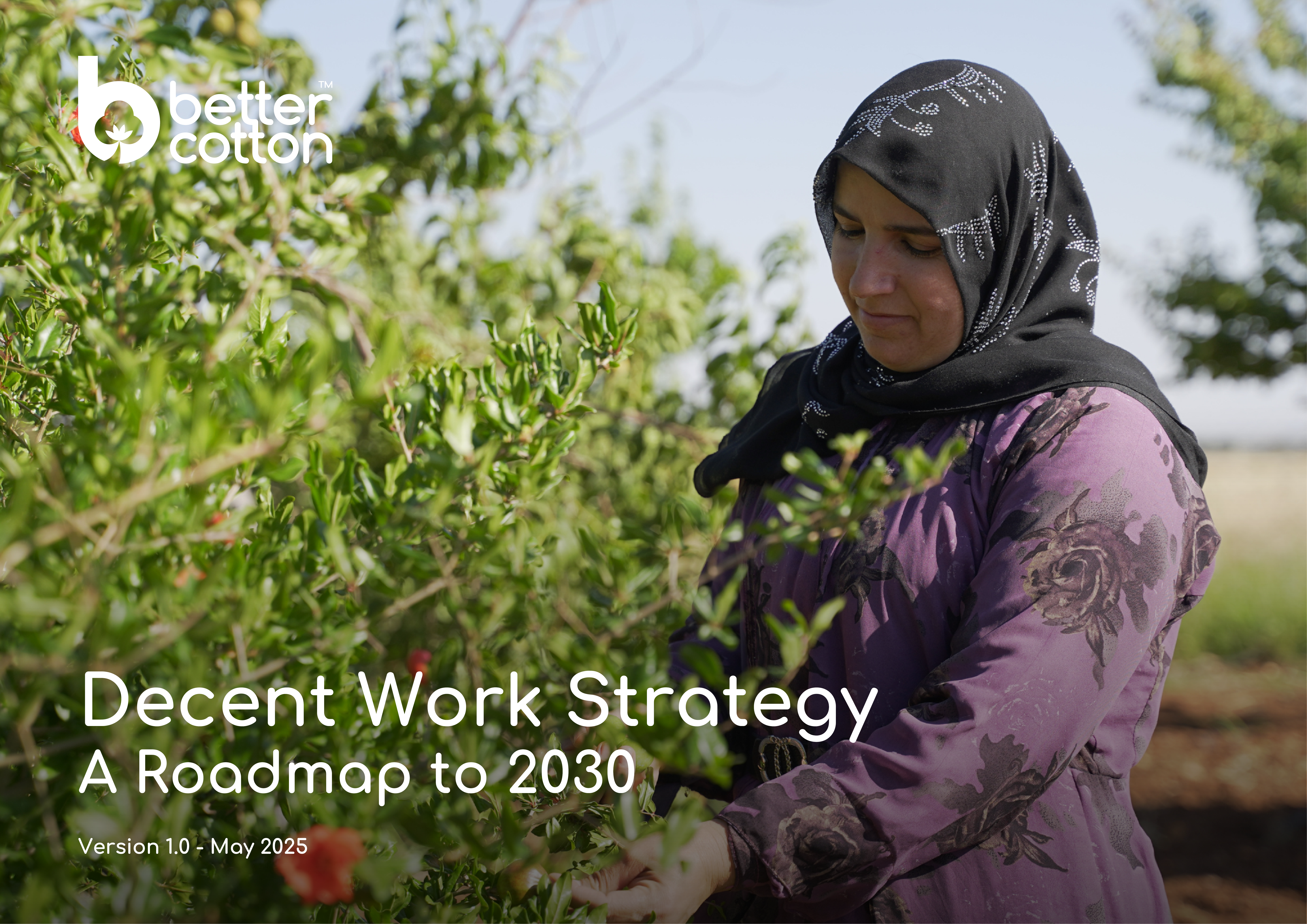
2020-25 Progress Report
The Decent Work Strategy roadmap builds on and replaces Better Cotton’s previous 2020-27 Decent Work Strategy, following a strategic review in 2025.
Significant changes within Better Cotton and the broader regulatory landscape between 2020 and 2025 prompted a review of the strategy to ensure our efforts remain relevant and impactful. The Decent Work Strategy 2020-25 Progress Report highlights our progress in advancing decent work across cotton-producing regions.
The report focuses on learning, strengthening, and monitoring. These three pillars bring together our activities aimed at understanding the contextual risks in the cotton sector; strengthening competencies of our staff, auditors, and Programme Partners and building partnerships with local and international actors; and monitoring progress at the field level through our assurance processes and data collection.
Better Cotton Decent Work Strategy: 2020-25 Progress Report
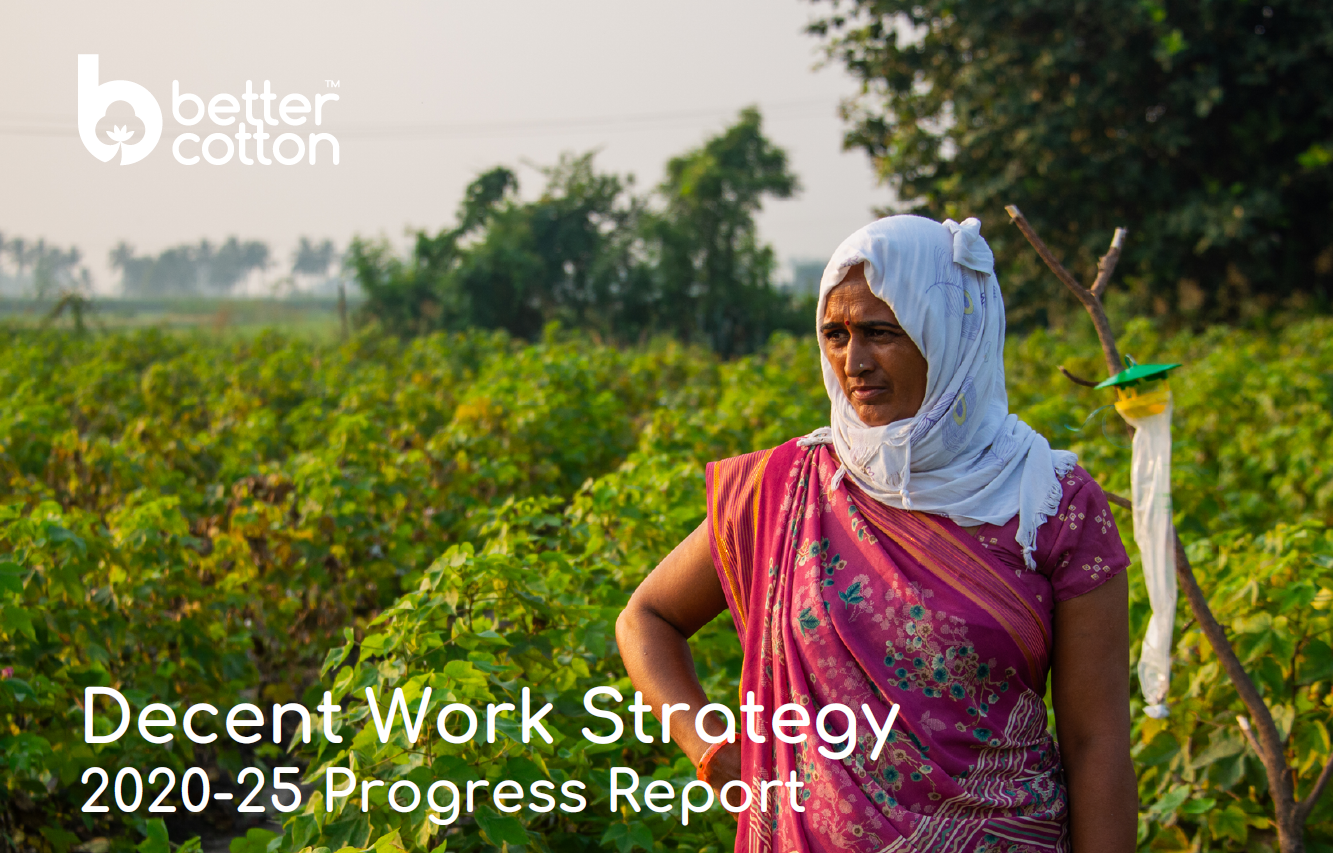
Better Cotton Decent Work Strategy: 2020-25 Progress Report Summary
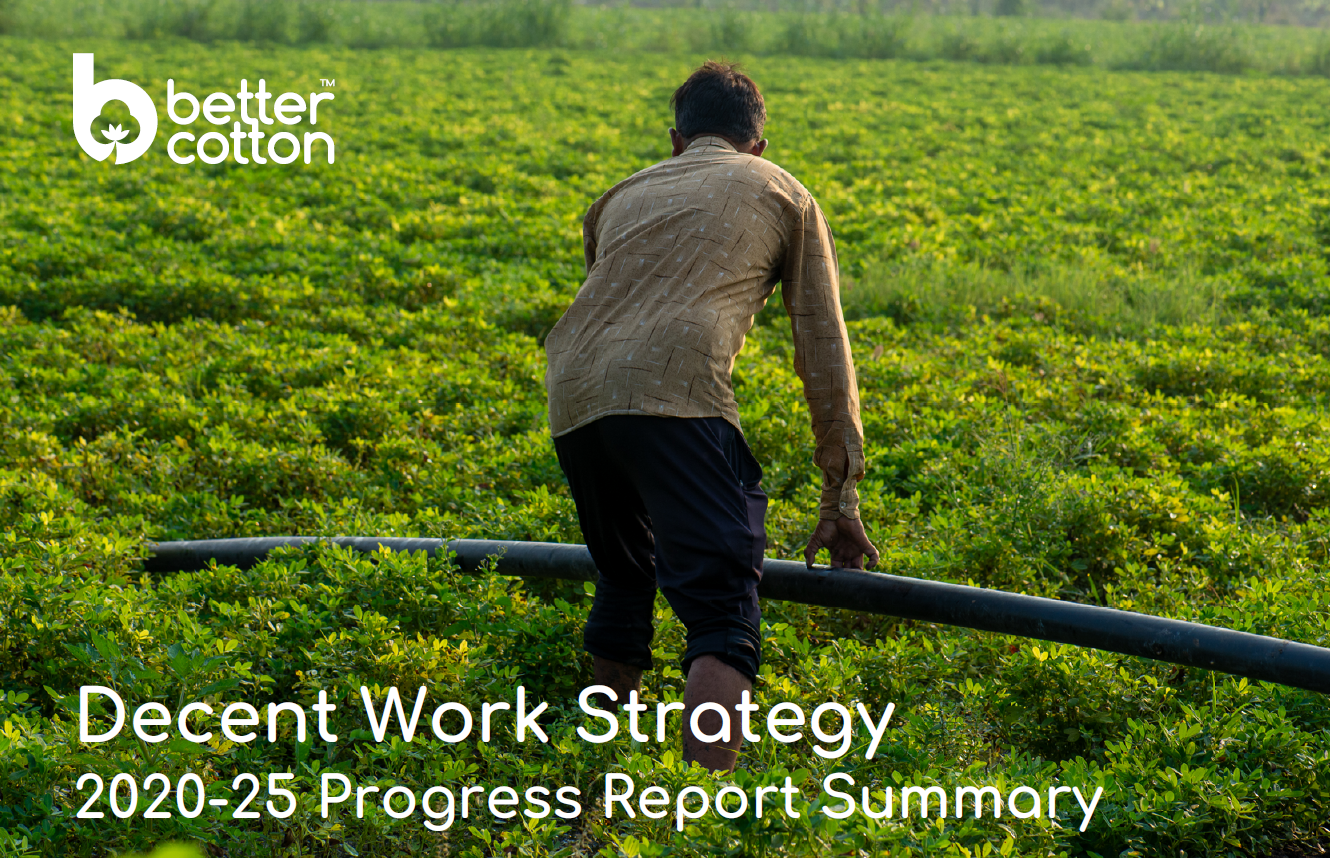
Better Cotton Decent Work Strategy 2020-27
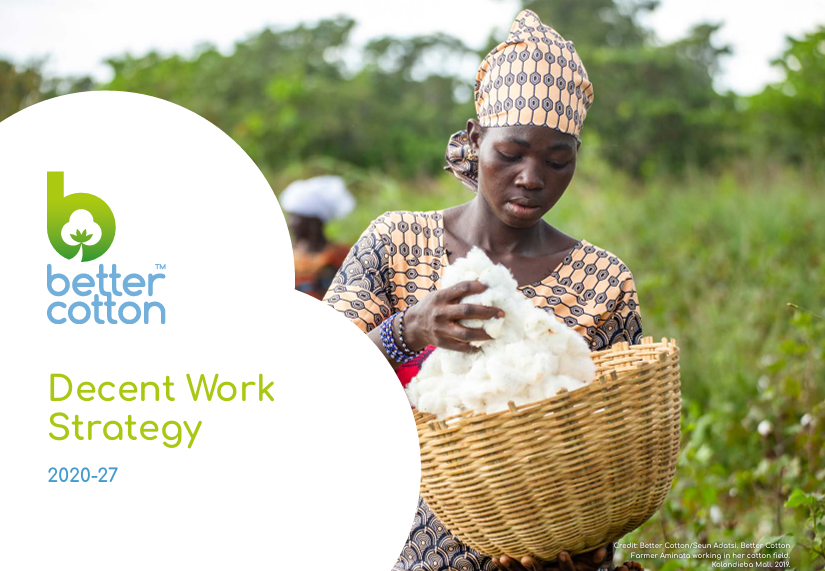
Labour and Human Rights Risk Analysis Tool
In order to monitor labour and human rights conditions in countries where our cotton is grown, Better Cotton has developed a risk analysis tool.
Decent Work in the Better Cotton Principles and Criteria
At Better Cotton, we take a broad approach to decent work that considers the diversity of contexts in which cotton is produced, from family smallholdings to large-scale farms. Our approach aligns with International Labour Organization (ILO) standards — widely considered the international authority on labour matters — and we are continuously improving it as we grow and evolve as an organisation.
All Better Cotton farmers (from smallholders to large-scale farms) must, at a minimum, work to uphold five Fundamental Principles and Rights at Work:
- Freedom of association and the right to collective bargaining
- The elimination of forced labour
- The abolition of child labour
- The elimination of discrimination in employment and occupation
- Occupational health and safety
Principle five of the Better Cotton Principles and Criteria lays out indicators for upholding these Fundamental Principles and Rights at Work, with requirements from ensuring farmers and workers understand these rights, assessing and addressing if these rights aren’t met and ensuring workers can access grievance mechanisms when needed. Better Cotton Farmers are required to follow national labour code unless those laws fall below the international labour standards.
Learn more
- About the Better Cotton Principles and Criteria
- About how Better Cotton farmers are addressing decent work in our latest Impact Report
- About our global guidance on preventing child labour
- Read the latest posts on our approach to decent work here:
Image credit: all United Nations Sustainable Development Goal (UN SDG) icons and infographics were taken from the UN SDG website. The content of this website has not been approved by the United Nations and does not reflect the views of the United Nations or its officials or Member States.
